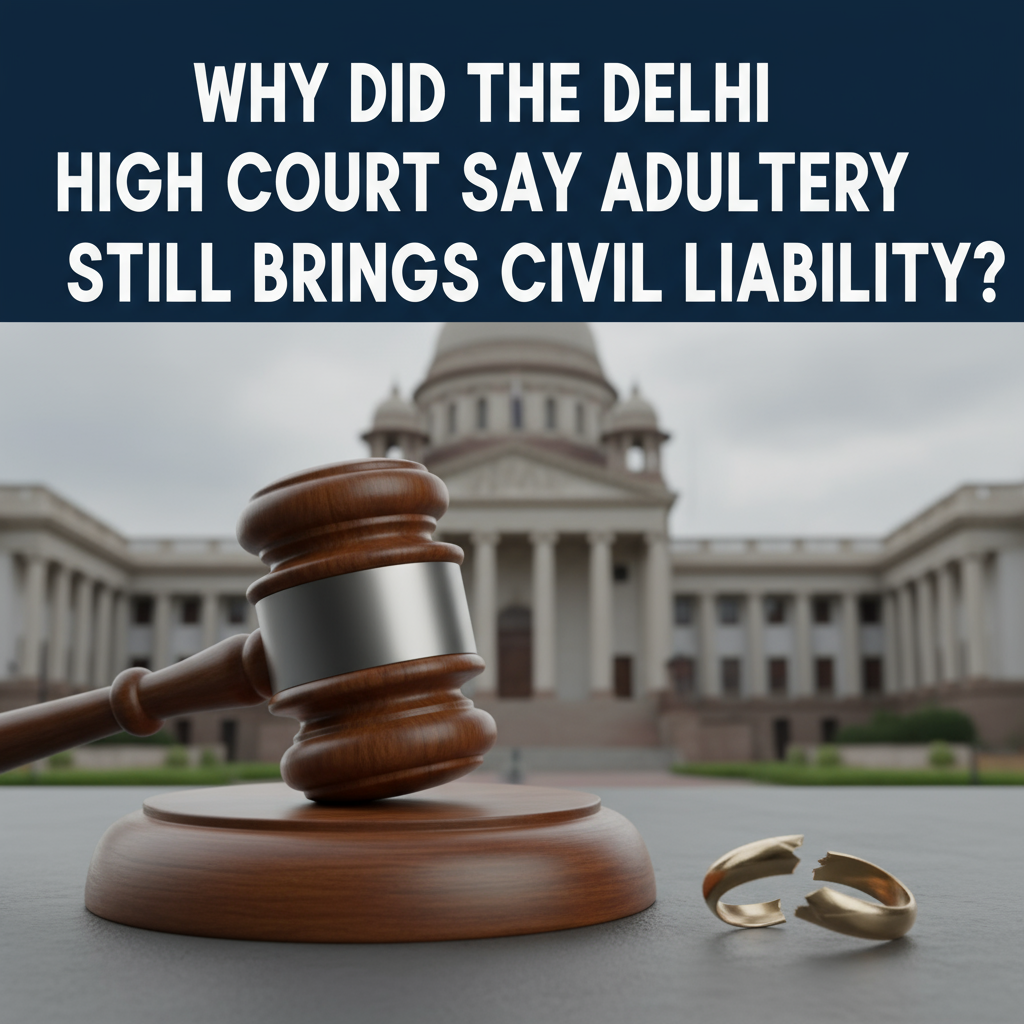Introduction : Delhi High Court on Cruelty: When a Wife’s Walkouts and Complaints Become Cruelty
Picture this: a marriage where one partner pulls away leaves home repeatedly without explanation, turns cold, and files a pile of complaints as a counterstrike. The Delhi High Court just made a strong statement on this kind of behaviour, ruling it amounts to cruelty. This isn’t about bruises you can see; it’s about the slowly growing emotional damage, the denial of companionship, and how such acts erode a marriage’s foundation.
Delhi High Court on Cruelty: The Backstory Behind the Breakup
The couple tied the knot in 1990, but things took a sharp downturn after years of marriage. The husband said his wife started to stay away for long stretches, refused to share a bed, and pressured the family for property. What made things worse? The complaints and FIRs didn’t show up until after the husband filed for divorce, making the timing pretty suspicious. This pattern showed more than just marital strain it hinted at a deliberate campaign that caused mental pain for him.
Delhi High Court on Cruelty: Understanding Mental Cruelty in Marriage
Mental cruelty may sound vague, but the court broke it down clearly: it means conduct so harsh that living with the other becomes unbearable. Refusing intimacy, accusing falsely, and cutting off the bond with one’s own child all fit the bill. It isn’t just the usual fights everyone has it’s deeper, systematic harm. The Delhi High Court reminded us that context matters; the whole history counts, not just one quarrel here or there.
Delhi High Court on Cruelty: False Complaints as a Weapon
One big takeaway was how the court saw the timing of those complaints. Filed after the divorce petition? That raised red flags. The court pointed out that using the law to harass is, ironically, a form of cruelty in itself adding layers to the suffering of the accused family and clogging the justice system with vindictive claims.
Delhi High Court on Cruelty: Parental Alienation Cuts Deep
The court didn’t gloss over the wife’s alleged blocking of the father’s contact with their son. Denying a parent access to a child isn’t just a petty feud; it hits at core emotional bonds and mental wellbeing for both child and parent. Such alienation, said the court, is a serious form of cruelty, one that fractures families beyond repair.
Delhi High Court on Cruelty: Credibility and Confessions Matter
What really swung the case was the wife’s own words in court about staying away from home and stopping conjugal relations. The husband’s consistent story, factual details like the last Karwa Chauth observed in 2008, made the family court’s decision look airtight. It became apparent that the marriage was breaking down, mostly due to the wife’s repeated decisions and behaviour. Delhi High Court on Cruelty: What This Means for Couples and Lawyers
This decision is a reminder that marriage demands give-and-take.
Conclusion – Delhi High Court on Cruelty: Closing Thoughts on Recognizing Mental Cruelty
In the final analysis, the court saw mental cruelty here as very real covering the absence of intimacy, emotional distancing, and turning a child into a tool in marital warfare. Upholding divorce on these grounds, the Delhi High Court sent a powerful signal: emotional torment is no less cruel or damaging than physical harm, and the law stands firm to protect those suffering in silence.

